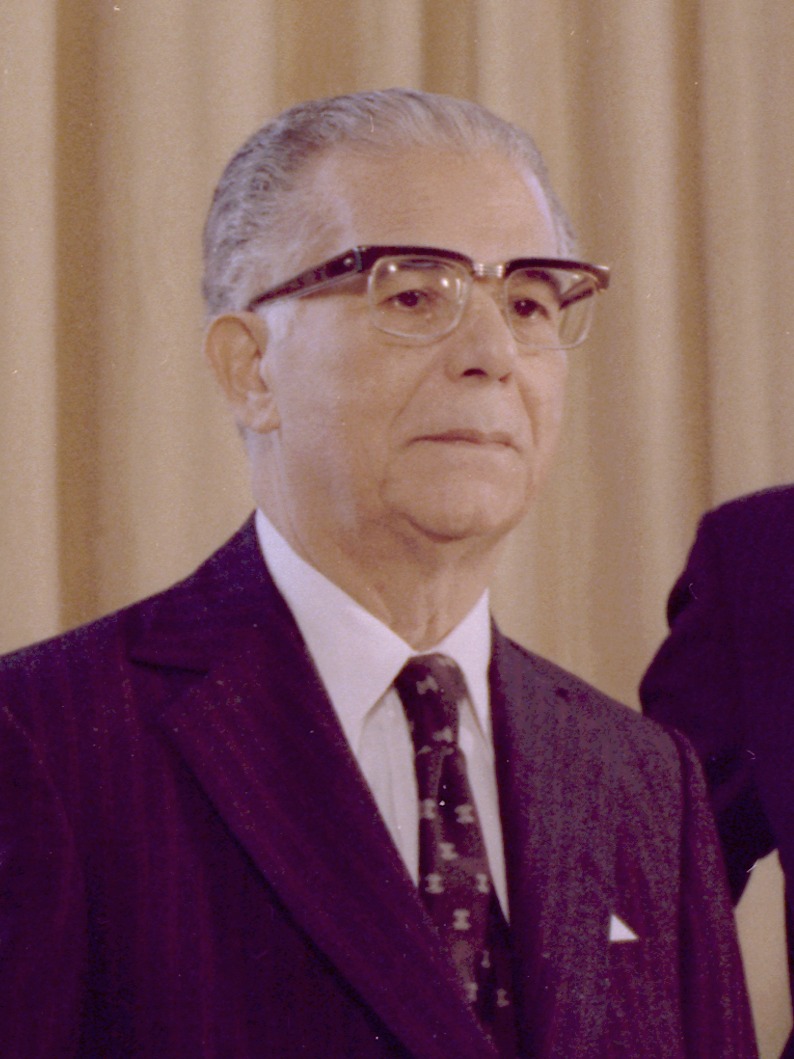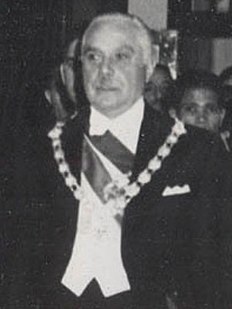
Juan Emilio Bosch Gaviño was a Dominican politician, historian, short story writer, essayist, educator, and the first democratically elected president of the Dominican Republic for a brief time in 1963. Previously, he had been the leader of the Dominican opposition in exile to the dictatorial regime of Rafael Trujillo for over 25 years. To this day he is remembered as an honest politician and regarded as one of the most prominent writers in Dominican literature. He founded both the Dominican Revolutionary Party (PRD) in 1939 and the Dominican Liberation Party (PLD) in 1973.

Parliamentary elections were held in the Dominican Republic on 16 May 2002. The result was a victory for the opposition Dominican Revolutionary Party-led alliance, which won 73 of the 150 seats in the House of Representatives. Voter turnout was 51.0%.

The Dominican Civil War took place between April 24, 1965, and September 3, 1965, in Santo Domingo, Dominican Republic. It started when civilian and military supporters of former President Juan Bosch overthrew acting President Donald Reid Cabral. The coup prompted General Elías Wessin y Wessin to organise elements of the military loyal to President Reid, known as loyalists, initiating an armed campaign against the so-called constitutionalist rebels. Allegations of foreign support for the rebels led to a United States intervention in the conflict, which later transformed into an Organization of American States occupation of the country. Elections were held in 1966, in the aftermath of which Joaquín Balaguer was elected into the presidential seat. Later in the same year international troops departed from the country.

General elections were held in the Dominican Republic on 16 May 1982. Salvador Jorge Blanco of the Dominican Revolutionary Party won the presidential election, whilst his party also won the parliamentary elections. Voter turnout was 71.6%.

General elections were held in the Dominican Republic on 16 May 1930. They were held three months after President Horacio Vasquez was deposed in a coup. When it became apparent that army commander Rafael Trujillo would be the only candidate that the army would allow to campaign unhindered, the other candidates all withdrew, leaving Trujillo to take the presidency unopposed. The Confederation of Parties won every seat in the Congressional elections.

General elections were held in the Dominican Republic on 16 May 1934. Two years earlier, the Dominican Party of President Rafael Trujillo had been declared the only legally permitted party. However, the country had effectively been a one-party state since Trujillo assumed office in 1930.

General elections were held in the Dominican Republic on 16 May 1938. At the time, the country was a single-party state, with the Dominican Party as the only legally permitted party.

General elections were held in the Dominican Republic on 16 May 1942. Rafael Trujillo was the only candidate in the presidential election and was elected unopposed, whilst his Dominican Party won every seat in the Congressional elections. They were the first elections in Dominican history in which women could vote.

General elections were held in the Dominican Republic on 16 May 1947. For the first time since the 1924 elections there was more than one presidential candidate. However, the incumbent Rafael Trujillo remained in power after receiving 93% of the vote. His Dominican Party won every seat in the Congressional elections.

General elections were held in the Dominican Republic on 16 May 1957. Héctor Trujillo was the only candidate in the presidential election, and was elected unopposed, although his predecessor and brother Rafael Trujillo maintained absolute control of the country. The Dominican Party won every seat in the Congressional elections.

General elections were held in the Dominican Republic on 20 December 1962. They were the first after the end of the Trujillo dictatorship two years earlier, and are generally reckoned as the first truly free elections in the country's history.

General elections were held in the Dominican Republic on 1 June 1966. Following the 1963 coup which toppled elected president Juan Bosch of the Dominican Revolutionary Party, supporters of his constitutional reforms were excluded from the elections, although Bosch himself contested them. The result was a victory for Joaquín Balaguer of the Reformist Party, whilst his party also won the Congressional elections. Voter turnout was 75.6%.

General elections were held in the Dominican Republic on 16 May 1970. The main opposition party, the Dominican Revolutionary Party, did not contest the election, leaving only the ruling Reformist Party and some right-wing and centre-right parties. Incumbent Joaquín Balaguer won the presidential election, whilst his Reformist Party won the Congressional elections. Voter turnout was 63.5%.

General elections were held in the Dominican Republic on 16 May 1974. The main opposition party, the Dominican Revolutionary Party, did not contest the election, leaving only the ruling Reformist Party and some right-wing and centre-right parties. Incumbent Joaquín Balaguer won the presidential election, whilst his Reformist Party won the Congressional elections in alliance with the National Youth Movement. Voter turnout was 71.7%.

General elections were held in the Dominican Republic on 16 May 1978. Following diplomatic pressure from American President Jimmy Carter, the elections were free and competitive and contested by all political parties, unlike the previous elections in the 1970s. Antonio Guzmán Fernández won the presidential election, whilst his Dominican Revolutionary Party won the Congressional elections. Voter turnout was 75.8%.

General elections were held in the Dominican Republic on 16 May 1990. Following a long vote count, Joaquín Balaguer of the Social Christian Reformist Party was declared winner of the presidential election, whilst in the Congressional elections the PSRC received the most votes and won a majority in the Senate, although the Dominican Liberation Party won the most seats in the House of Representatives. Voter turnout was 59.9%.

General elections were held in the Dominican Republic on 16 May 1994. Joaquín Balaguer of the Social Christian Reformist Party won the presidential election, whilst the Dominican Revolutionary Party-led alliance won the Congressional elections. Voter turnout was 87.6%.

Parliamentary elections were held in the Dominican Republic on 16 May 1998. The result was a victory for the opposition Dominican Revolutionary Party-led alliance, which won 83 of the 149 seats in the House of Representatives. Voter turnout was 52.9%.









